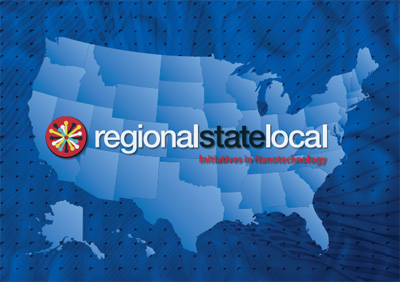
This report on Regional, State, and Local (RSL) Initiatives in Nanotechnology is the result of a workshop convened 1–2 May 2012 in Portland, Oregon, by the Nanoscale Science, Engineering, and Technology (NSET) Subcommittee of the National Science and Technology Council. The report was made possible with the help of the NSET Subcommittee’s Nanomanufacturing, Industry Liaison, and Innovation (NILI) Working Group and with staff support from the National Nanotechnology Coordination Office (NNCO). The workshop is part of the NSET Subcommittee’s long-range planning efforts for the National Nanotechnology Initiative (NNI), the multi-agency Federal nanotechnology program. The NNI is driven by long-term goals based on broad community input, in part received through workshops such as this one. The NNI seeks to accelerate the research, development, and deployment of nanotechnology to address national needs, enhance our nation’s economy, and improve the quality of life in the United States and around the world through the coordination of activities and programs across the Federal Government. The NNI’s reports are the result of an ongoing series of workshops organized by the NSET Subcommittee to inform the professional communities as well as the various agencies and organizations that have responsibilities for coordinating, implementing, and guiding the NNI.
The goal of the 2012 NNI Workshop on RSL Initiatives in Nanotechnology was to improve the outcomes of nanotechnology research, education, and business activities undertaken by U.S. organizations working to advance nanotechnology, such as small and large businesses, universities, research and education foundations, industry groups, and nongovernmental organizations. The strategy for reaching this goal is to exploit synergies between the various initiatives, promote sharing of information and resources, and develop ongoing mechanisms for relevant interactions. Specific objectives of the workshop are outlined in the workshop report in both the Executive Summary and in first chapter.
